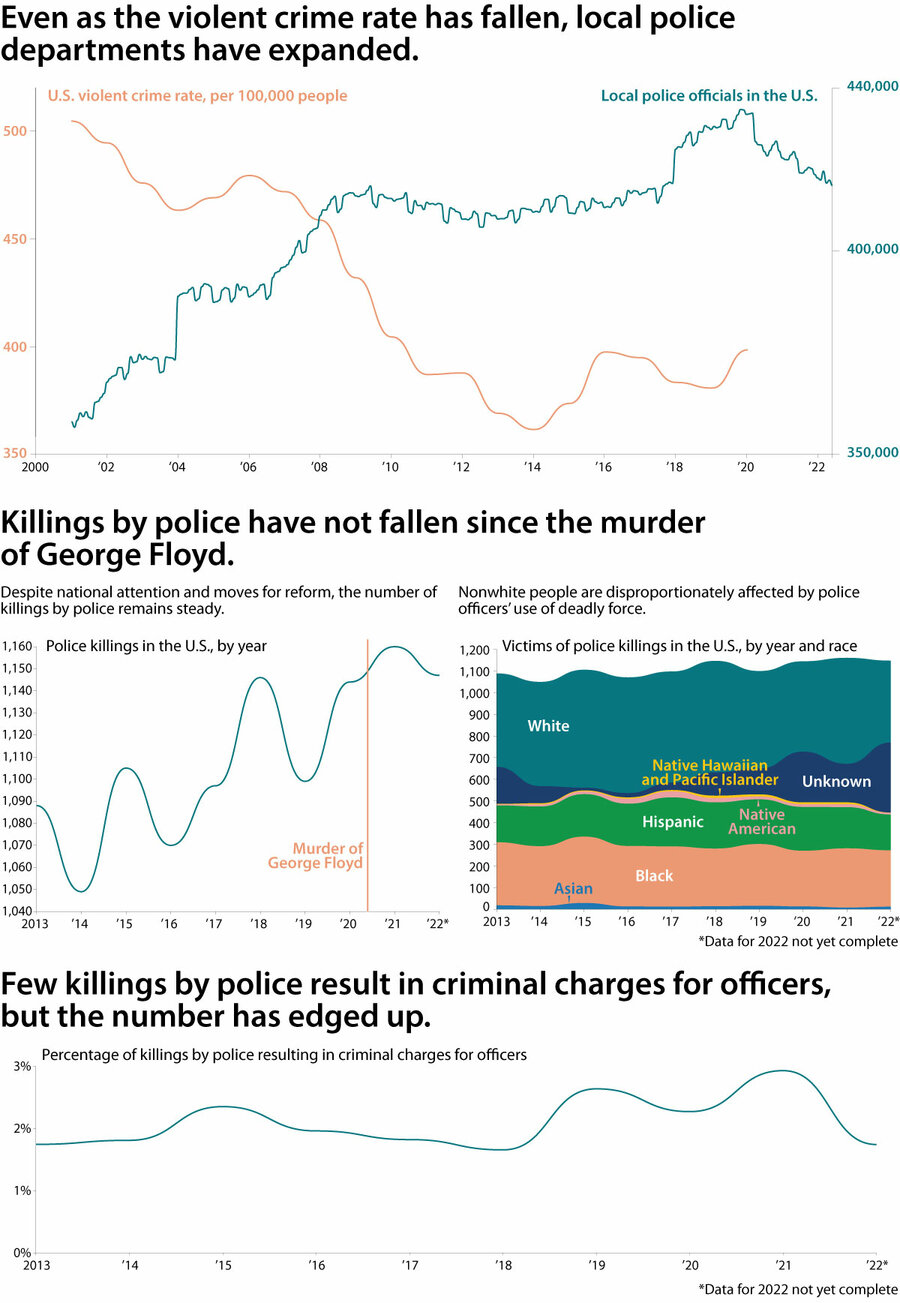As the war with Russia grinds on, Ukraine’s economy is under pressure and dependent on foreign aid. The average Ukrainian faces an uncertain future, but is still finding ways to persevere.
Monitor Daily Podcast
- Follow us:
- Apple Podcasts
- Spotify
- RSS Feed
- Download
 Mark Sappenfield
Mark Sappenfield
On Wednesday, the College Board released its official curriculum for a new Advanced Placement course in African American studies. Some conservatives balked at proposals for the class, mostly around hot topics like Black Lives Matter and Black queer life. Florida’s Republican governor, Ron DeSantis, said he’d ban the class. The College Board’s final plan largely skirts those issues.
The controversy speaks to deep divides over how to teach race in America’s classrooms. But it also creates another interesting optic: white people deciding what parts of Black history are acceptable.
In concert with Black History Month, the Pew Research Center is highlighting a variety of surveys that look at Black views of America. They’re worth a look. In one survey, 42% of Black respondents say white Americans would need to face the same hardships to be real allies, while 35% say white people can be good allies regardless. In another, 87% of Black adults say the prison system needs significant changes – with 54% saying it needs to be completely rebuilt.
Perhaps most interesting is the divide between Black and white Americans on racism itself. Some 70% of white respondents say individual racism is the larger problem, while 52% of Black respondents say the bigger problem is racism in laws.
In many ways, this has defined America’s recent racial conversation. Each individual wants to say, “I’m not racist.” But the surveys suggest that might not be the most pressing question. How do we erase the grooves worn into law and institutions by generations of racism, which still shape the outlines of prosperity today? Why does the median white household have $188,200 in wealth, while the median Black household has $24,100?
An AP course makes for lively politics. The deeper question might be whether Black Americans themselves feel they have the space and opportunity to write a new chapter in American history.











